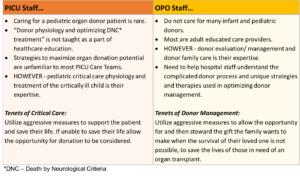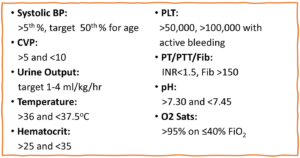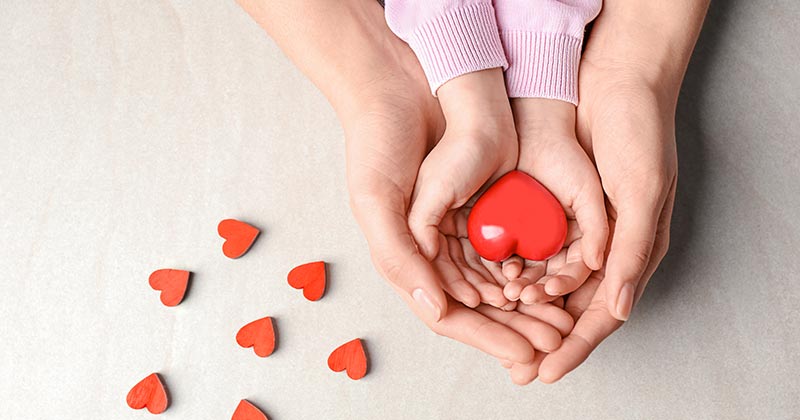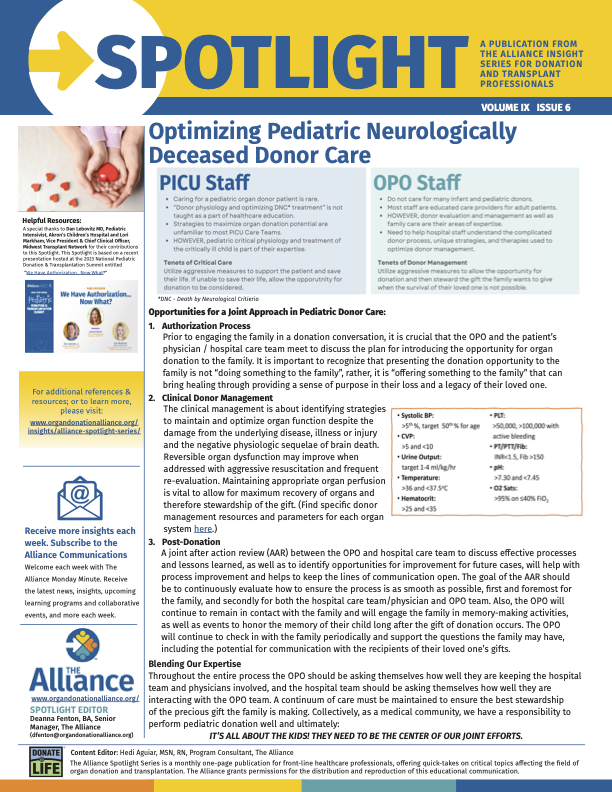The Situation

~~ SUCCESSFUL DONATION RESULTS FROM BLENDING OUR EXPERTISE! ~~
Opportunities for a Joint Approach in Pediatric Donor Care:
- Authorization Process: Prior to engaging the family in a donation conversation, it is crucial that the OPO and the patient’s physician / hospital care team meet to discuss the plan for introducing the opportunity for organ donation to the family. It is important to recognize that presenting the donation opportunity to the family is not “doing something to the family”, rather, it is “offering something to the family” that can bring healing through providing a sense of purpose in their loss and a legacy of their loved one.
- Clinical / Donor Management: The clinical management is about identifying strategies to maintain and optimize organ function despite the damage from the underlying disease, illness or injury and the negative physiologic sequelae of brain death. Reversible organ dysfunction may improve when addressed with aggressive resuscitation and frequent re-evaluation. Maintaining appropriate organ perfusion is vital to allow for maximum recovery of organs and therefore stewardship of the gift. (Find specific donor management resources and parameters for each organ system here.) The physiologic end points are:

- Post Donation: A joint after action review (AAR) between the OPO and hospital care team to discuss effective processes and lessons learned, as well as to identify opportunities for improvement for future cases, will help with process improvement and helps to keep the lines of communication open. The goal of the AAR should be to continuously evaluate how to ensure the process is as smooth as possible, first and foremost for the family, and secondly for both the hospital care team/physician and OPO team. Also, the OPO will continue to remain in contact with the family and will engage the family in memory-making activities, as well as events to honor the memory of their child long after the gift of donation occurs. The OPO will continue to check in with the family periodically and support the questions the family may have, including the potential for communication with the recipients of their loved one’s gifts.
Blending Our Expertise
Throughout the entire process the OPO should be asking themselves how well they are keeping the hospital team and physicians involved, and the hospital team should be asking themselves how well they are interacting with the OPO team. A continuum of care must be maintained to ensure the best stewardship of the precious gift the family is making. Collectively, as a medical community, we have a responsibility to perform pediatric donation well and ultimately:







